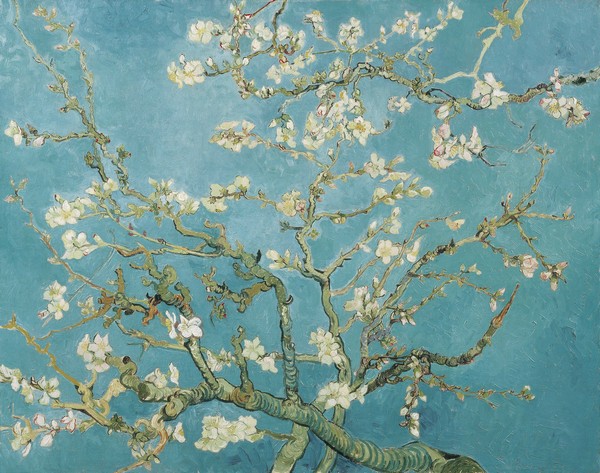
After listening to Andrè Schuen and Daniel Heide's great performance of Die schöne Magelone, I thought it had been a long time since I'd shared a song from this Brahms cycle here. When I checked, I discovered that it was in January 2016, more than seven years ago! It's been a while. So, it's time to listen to one more song from this work, officially called Romanzen aus Ludwig Tiecks Magelone [Romances from Ludwig Tieck's Magelone]; Brahms composed it, leisurely and without any order, between 1861 and 1869. When finally published, it was Opus 33 in Brahms catalogue.
As the title of the work says, the texts are drawn from a tale by Ludwig Tieck, one of the names related to Jena's Romanticism (mental note: to speak some day about this wonderful people). Tieck recovered a medieval history of Provençal origin and included his version in one of the three volumes of folk tales he published in 1797, when he was twenty-four (Brahms was twenty-eight when he began to compose the songs). Years later, between 1812 and 1816, Tieck published the three volumes of Phantasus, a novel in which stories were told and debated on at a gathering of friends; that is, a sort of Decameron, but without an epidemic. The medieval tale, Liebesgeschichte der schönen Magelone und des Grafen Peter von Provence [History of Love of the beautiful Magelone and Count Peter of Provence] appeared again in Phantasus, now enriched with the comments of the literary salon.
The tale is divided into eighteen chapters in prose, each of which includes a song that sings one of the characters. Brahms' set fifteen of these songs into music. When I first spoke with you about the story, I explained it in some detail, so I won't return to it now. However, I will give you a brief overview of the context of the song we're listening to this week. It's the third one in the cycle, Sind es Schmerzen, sind es Freuden [Are they sorrows or are they joys], found in the fourth chapter of the story, Peter sieht die schöne Magelone [Pere sees the beautiful Magelone].
I must admit that I like these direct titles, which illustrate the content of the text. Because, as you will have assumed, chapter 4 tells the first encounter between Peter and Magelone. Peter is in Naples, where knights are gathering to hold tournaments. He participates, but without revealing his identity. His elm, shield, and horse robes are adorned with two silver keys in honour of Saint Peter, whom he commended himself. All the attendees, especially Princess Magelone, pay attention to the knight with the two keys as he starts to win all the jousts of the first tournament. Magelone also wishes the stranger to win the second tournament, and is delighted when the king invites him to share his table and places him in front of her. Then, for the first time, Peter sees her. He becomes fascinated by her, all the more so when he realizes that she keeps watching him, smiles at him and talks to him; after the banquet, she takes him away to speak to him alone, and, when they say goodbye, she asks him to come back to her often.
When Peter leaves the castle, he falls like he is drunk, so Tieck tells us. Without being fully aware, he stops in a garden, where he will wander for hours. At first, a music will fill his head, and he will not hear either the rustle of the trees or the fountain. Then, he will hear music coming from a distance, and he will imagine the melody representing Magelone. He will think he's in paradise, and that will make him feel exultant, and sad and lost as well. He will not leave the garden until nightfall, when he is sufficiently calm to reach his chamber, where he pledges to win the princess's love or perish in the attempt, unaware that he has already won Magelone's love.
Before leaving the garden, he sings a song that reflects his feelings and doubts, recalling everything he has lived through the afternoon. When Brahms writes his song, he also describes the tribulations of the young man, and the spirit of the song changes as the six verses of the poem progress. The first two share the music, a calmed music with a beautiful melody anticipated by the prelude of the piano; it seems that young Peter is still in the dream state in which he has spent much of the afternoon. In the third and fourth stanzas calm continues, and the music reminds us with some sentences of the first part, but Peter is already wondering what life would be without her, just darkness without hope.
With the fifth stanza arrives a sudden change, and we come across the Peter the Princess has met in the morning, the knight who has won all the jousting, who tries to overcome his pain, so energetically that he even repeats the stanza. Finally, in the sixth stanza, with the same heroic tone and also repeating the last part, he makes the solemn promise that he will repeat later in his chamber.
We will hear Sind es Schmerzen, sind es Freuden performed by Dietrich Fischer-Dieskau and Hermann Reuter. But before, dear readers, I think you'll like to know that after a day of so much emotion, sleep finally surprises Peter and frees him from all doubts and fears, bringing him only the sweetest dreams.
Sind es Schmerzen, sind es Freuden,
Die durch meinen Busen ziehn?
Alle alten Wünsche scheiden,
Tausend neue Blumen blühn.
Durch die Dämmerung der Tränen
Seh' ich ferne Sonnen stehn, -
Welches Schmachten! welches Sehnen!
Wag' ich's? soll ich näher gehn?
Ach, und fällt die Träne nieder,
Ist es dunkel um mich her;
Dennoch kömmt kein Wunsch mir wieder,
Zukunft ist von Hoffnung leer.
So schlage denn, strebendes Herz,
So fließet denn, Tränen, herab,
Ach, Lust ist nur tieferer Schmerz,
Leben ist dunkeles Grab, -
Ohne Verschulden
Soll ich erdulden?
Wie ist's, daß mir im Traum
Alle Gedanken
Auf und nieder schwanken!
Ich kenne mich noch kaum.
O, hört mich, ihr gütigen Sterne,
O höre mich, grünende Flur,
Du, Liebe, den heiligen Schwur:
Bleib' ich ihr ferne,
Sterb' ich gerne.
Ach, nur im Licht von ihrem Blick
Wohnt Leben und Hoffnung und Glück!
Are they sorrows or are they joys
Which tug at my breast?
All the old desires leave;
A thousand new flowers bloom.
Through the dusk of tears
I see suns standing in the distance, -
What languishing, what longing!
Do I dare? Shall I move closer?
Ah, and when my tears are falling,
It is dark around me;
Yet if my desires do not return,
The future is empty of hope.
So beat then, my ambitious heart,
So flow down then, my tears,
Ah, joy is only a deeper pain,
Life is a dark grave, -
Without guilt,
Should I then suffer?
How is it that in my dreams
All my thoughts
Tremble up and down?
I scarcely know myself any more.
O, hear me, kindly stars,
O hear me, green meadow,
And you, my love, hear my holy oath:
If I remain far from her,
I will die gladly.
Ah, only in the light of her gaze
Dwell life and hope and happiness!
(translation by Emily Ezust)


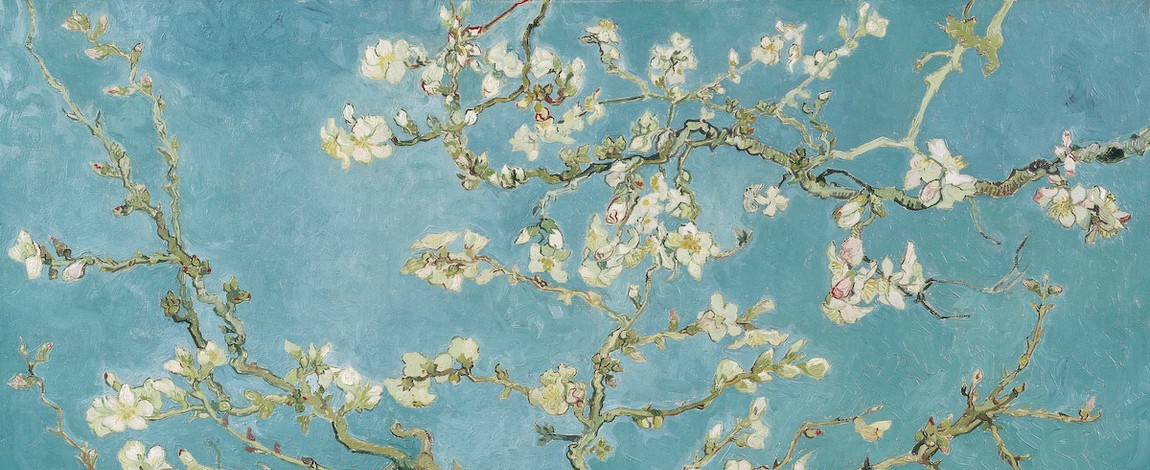
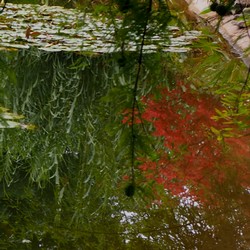
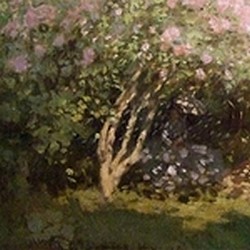
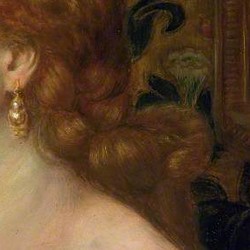
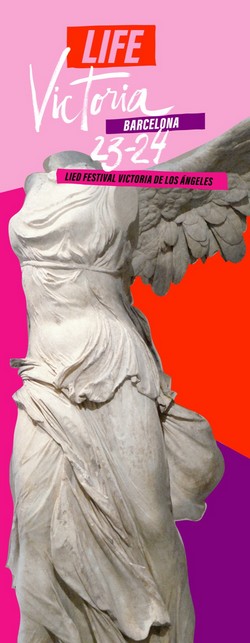











Comments powered by CComment